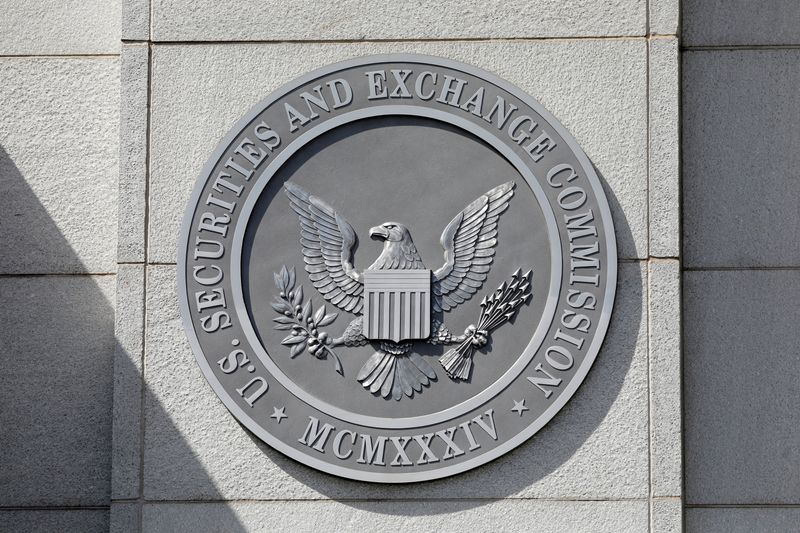By Carolina Mandl and Michelle Price
NEW YORK (Reuters) - Three hedge fund associations sued the U.S. Securities and Exchange Commission (SEC) on Tuesday in a bid to vacate two new rules aimed at boosting transparency of short-selling, or trades that earn investors a profit if a stock price falls.
In October, the SEC issued the rules aimed at boosting transparency of short selling and securities lending, two connected activities.
The groups say the SEC took conflicting stances with the rules, in one case allowing for transaction reports to be aggregated in order to protect investors' positions, yet at the same time requiring other transaction reports to disclosed individually.
The case, filed in the 5th U.S. Circuit Court of Appeals, is the second brought by the hedge fund groups against the SEC in recent months. Wall Street has been fighting a raft of new financial regulations in court.
In their suit, the groups argue the SEC did not take into account the interconnected nature of the two rules and adopted contradictory approaches, adding as such the rules will harm investors. They also added the rules violate the Administrative Procedure Act, which requires agencies to justify their rules and consider feedback.
"Despite our best efforts, the SEC decided to ignore the interconnected nature of these two rulemakings and failed to apply a consistent approach or principle to regulating these related markets," said Bryan Corbett, President and CEO of the Managed Funds Association, one of the trade groups, said in a press release.
The SEC told Reuters in an email that it will "vigorously defend challenged rules in court."
Short selling involves borrowing a stock to sell it in the expectation the price will fall. The investor then buys the stock back at the lower price, pocketing the difference.
The SEC's October short-selling rule requires hedge funds to report short positions to the regulator, which publishes them with a delay on an aggregate basis in which individual traders remain anonymous. The second rule requires financial firms to make daily reports on individual securities loans, which facilitate their short positions. That data will also be disclosed on a delayed basis.
Fund managers oppose increased transparency around their trades, even though the parts involved are not identified. The rules could end up "revealing confidential investment strategies and potentially facilitating retaliation or other manipulative activities," the groups argued in the filing.
The other petitioners are the Alternative Investment Management Association and the National Association of Private Fund Managers.
Long a contentious practice, short selling generated controversy again during the GameStop (NYSE:GME) saga in 2021, when retail investors drove up the price of shares in the videogame retailer, causing heavy losses for hedge funds that had shorted the company.
When adopting the rules, SEC chair Gary Gensler said it was "important for the SEC and the public to know more about short sale activity in the equity markets, especially in times of stress or volatility."
In September, the same three groups, along with other associations, sued the SEC over new private funds rules.
